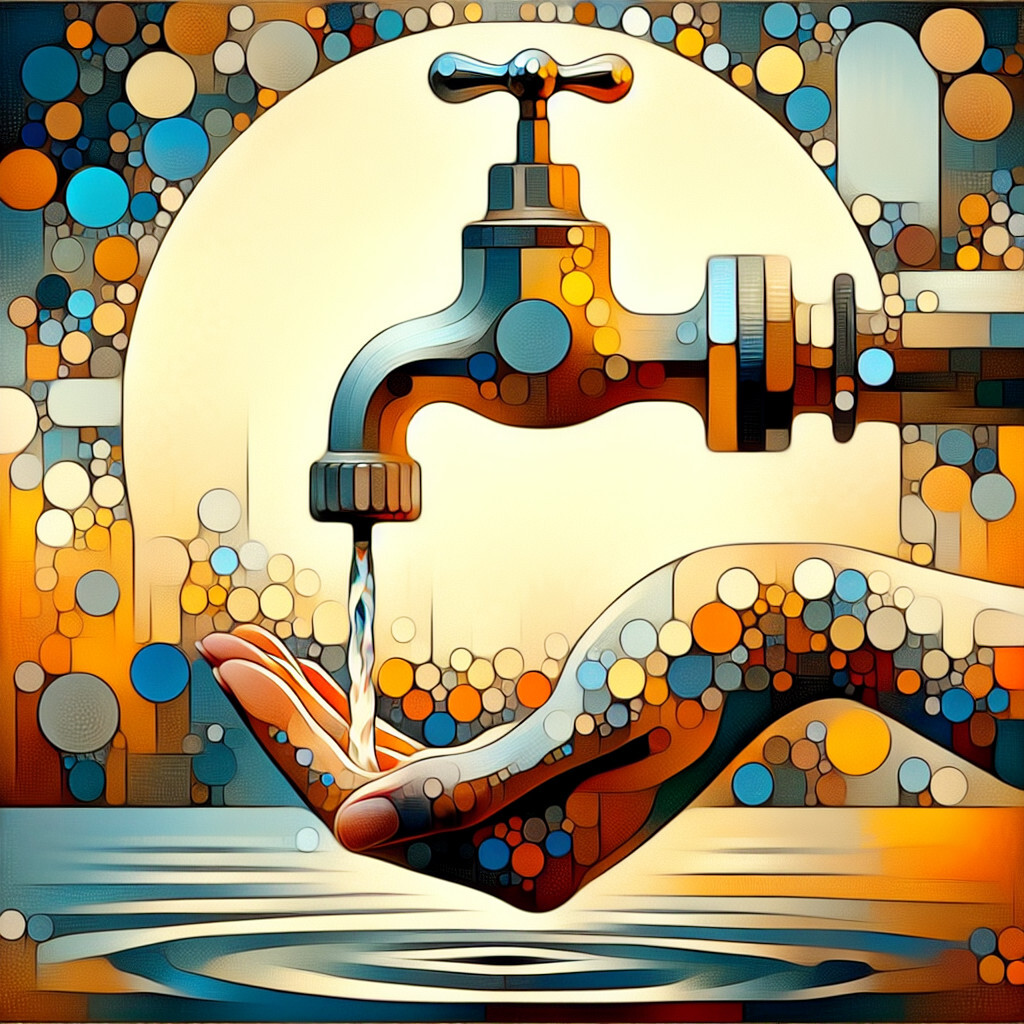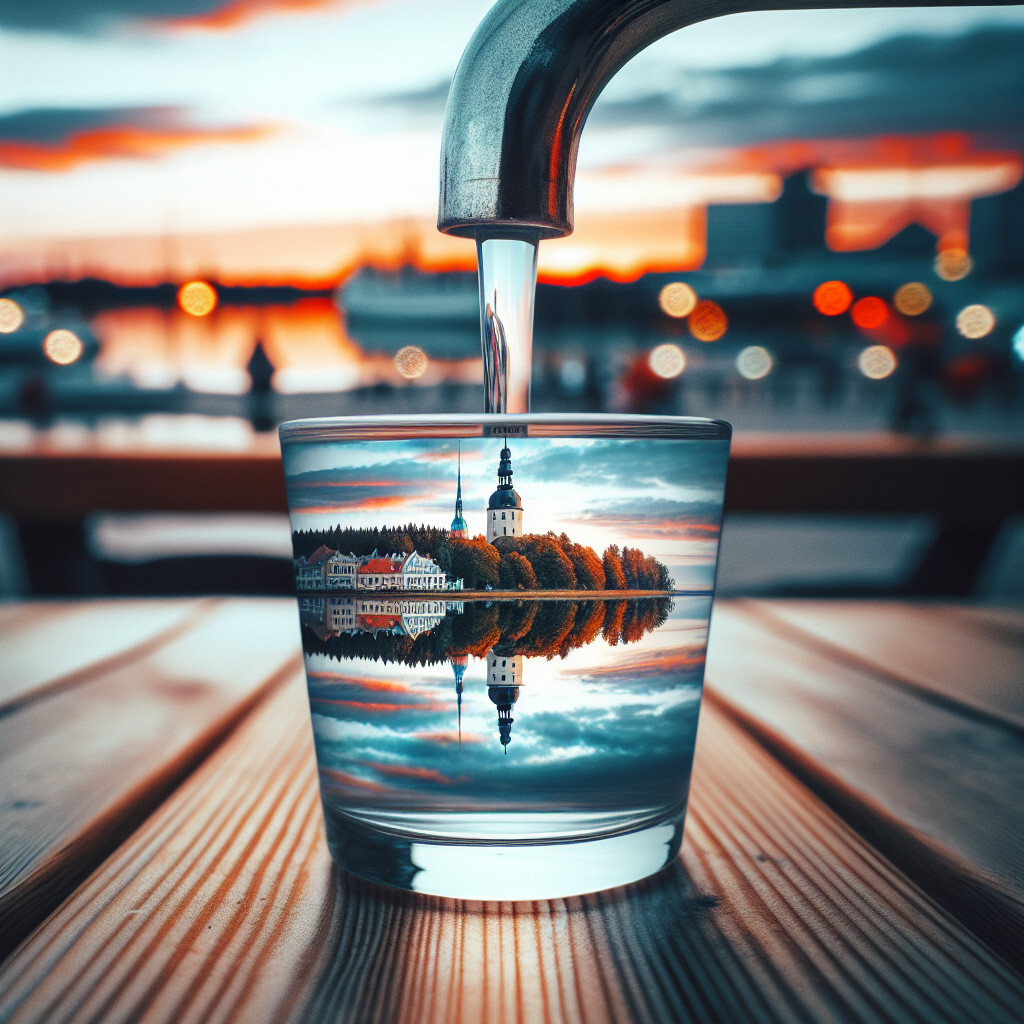-
Table of Contents
“Latvia’s Tap Water: Pure, Clean, and Safe to Drink!”
Introduction

The tap water in Latvia is generally safe to drink and meets international water quality standards. It is sourced from underground wells and is treated to remove any harmful substances. However, the quality can vary depending on the region, with some rural areas having issues with water hardness and iron content. In the capital city, Riga, the tap water is of high quality, but it is recommended to use a filter to improve the taste and remove any residual minerals. Despite this, many locals and tourists prefer to drink bottled water.
Understanding the Quality of Tap Water in Latvia
Latvia, a country located in the Baltic region of Northern Europe, is known for its rich cultural heritage, stunning landscapes, and high-quality tap water. The quality of tap water in Latvia is a topic of interest for both residents and visitors alike. This article aims to provide an in-depth understanding of the quality of tap water in Latvia, discussing its sources, treatment processes, and safety standards.
Latvia’s tap water primarily originates from underground water sources, specifically from the Devonian aquifer system. This system, which spans across the entire country, is a significant source of fresh water. The water from these aquifers is naturally filtered through layers of sand and gravel, which helps in removing impurities and maintaining its high quality.
The treatment of tap water in Latvia is a rigorous process that adheres to stringent European Union (EU) standards. The water undergoes several stages of treatment, including coagulation, sedimentation, filtration, and disinfection. Coagulation involves the addition of chemicals to the water to remove suspended particles. Sedimentation allows these particles to settle at the bottom of the water supply. Filtration further removes any remaining particles, and disinfection eliminates harmful bacteria and viruses. This comprehensive treatment process ensures that the tap water in Latvia is safe for consumption.
In addition to the treatment process, regular testing is conducted to monitor the quality of tap water. These tests check for various parameters such as pH level, hardness, and the presence of harmful substances like lead and pesticides. The results of these tests are made publicly available, providing transparency about the quality of tap water.
The quality of tap water in Latvia is also regulated by the Latvian Health Inspectorate, which ensures compliance with the EU’s Drinking Water Directive. This directive sets quality standards for water intended for human consumption, covering aspects such as microbiological parameters, chemical composition, and radiological parameters. The Latvian Health Inspectorate conducts regular inspections and audits to ensure that these standards are met.
Despite the high quality of tap water in Latvia, it is worth noting that the taste and hardness of the water can vary across different regions of the country. This is primarily due to the varying mineral composition of the water in different aquifers. For instance, water in the coastal regions tends to be harder due to the higher concentration of calcium and magnesium salts. However, this does not affect the safety of the water.
In conclusion, the tap water in Latvia is of high quality and safe for consumption, thanks to the country’s abundant natural water sources, rigorous treatment processes, and strict regulatory standards. Whether you are a resident or a visitor, you can confidently consume tap water in Latvia. However, if you prefer water with a specific taste or hardness level, you may opt for bottled water or use a water filter at home. Regardless of your preference, rest assured that Latvia is committed to providing its inhabitants with clean and safe drinking water.
The Impact of Environmental Factors on Latvia’s Tap Water
Latvia, a country nestled in the Baltic region of Northern Europe, is renowned for its rich cultural heritage, stunning landscapes, and pristine natural resources. Among these resources, water, particularly tap water, holds a significant place. The quality of tap water in Latvia is largely influenced by various environmental factors, which play a pivotal role in determining its safety and suitability for consumption.
Latvia’s tap water primarily originates from two sources: groundwater and surface water. Groundwater, which is water from underground aquifers, is the primary source of drinking water in Latvia, accounting for approximately 70% of the total supply. The remaining 30% is sourced from surface water bodies such as rivers and lakes. The quality of these water sources is directly impacted by environmental factors such as soil composition, rainfall, and human activities.
The soil composition in Latvia is diverse, ranging from sandy soils in the coastal regions to clay and loam in the inland areas. This diversity significantly influences the quality of groundwater. For instance, sandy soils are highly permeable, allowing rainwater to percolate quickly and recharge the aquifers. However, this rapid percolation can also lead to the leaching of harmful substances from the soil into the groundwater, potentially affecting its quality.
Rainfall is another crucial environmental factor that impacts the quality of Latvia’s tap water. Latvia experiences a temperate maritime climate with moderate to high rainfall throughout the year. This abundant rainfall helps in replenishing the groundwater sources, ensuring a steady supply of water. However, excessive rainfall can also lead to surface runoff, carrying pollutants from the land into the surface water bodies and potentially contaminating the water supply.
Human activities, particularly agriculture and industrial operations, also significantly impact the quality of Latvia’s tap water. Agricultural activities often involve the use of fertilizers and pesticides, which can seep into the groundwater or be carried into surface water bodies through runoff, leading to water contamination. Similarly, industrial operations can release harmful chemicals and waste into the water sources, further compromising the water quality.
Despite these challenges, Latvia has made significant strides in ensuring the safety and quality of its tap water. The country has implemented stringent water quality standards, in line with the European Union’s Drinking Water Directive. Regular monitoring and testing of water sources are carried out to detect any contamination early and take corrective measures promptly. Moreover, advanced water treatment processes are employed to remove any potential contaminants from the water before it reaches the consumers.
Furthermore, Latvia has been actively promoting sustainable practices to mitigate the impact of human activities on water quality. These include encouraging organic farming to reduce the use of chemical fertilizers and pesticides, implementing stricter regulations for industrial waste disposal, and promoting water conservation among the public.
In conclusion, while environmental factors do pose challenges to the quality of Latvia’s tap water, the country’s proactive measures and commitment to sustainability ensure that its residents have access to safe and clean drinking water. As Latvia continues to balance its rich natural resources with its growing development needs, the quality of its tap water remains a testament to its successful environmental stewardship.
Health Implications of Drinking Tap Water in Latvia
Latvia, a beautiful country nestled in the Baltic region of Northern Europe, is known for its rich culture, stunning landscapes, and high-quality tap water. However, the health implications of drinking tap water in Latvia are a topic of interest for both residents and visitors. This article aims to provide an informative and formal discussion on the subject.
Latvia’s tap water is generally considered safe to drink, thanks to the country’s stringent water quality standards and regular monitoring. The Latvian Health Inspectorate, the body responsible for ensuring the safety of drinking water, conducts frequent checks on the water supply. These checks involve testing for various contaminants, including bacteria, viruses, and harmful chemicals. The results are then compared with the standards set by the World Health Organization (WHO) and the European Union (EU).
The tap water in Latvia primarily comes from underground sources, which are less susceptible to pollution than surface water. This, coupled with the country’s advanced water treatment processes, ensures that the tap water is free from harmful substances. However, it’s important to note that the quality of tap water can vary depending on the location. For instance, in some rural areas, the tap water may contain higher levels of certain minerals due to the local geology.
Despite the general safety of Latvia’s tap water, some health concerns have been raised. One of these concerns is the presence of nitrates in some water supplies. Nitrates, which can come from agricultural runoff, can pose a health risk if consumed in large amounts. Long-term exposure to high levels of nitrates has been linked to various health problems, including certain types of cancer and methemoglobinemia, a condition that affects the body’s ability to carry oxygen.
Another concern is the potential presence of lead in the tap water. This is not a problem with the water source itself, but rather with the plumbing systems in some older buildings. Lead pipes, which were commonly used in the past, can leach lead into the water, especially if the water is acidic or has a low mineral content. Consuming lead-contaminated water can lead to a range of health issues, from developmental problems in children to cardiovascular diseases in adults.
To mitigate these risks, the Latvian government has implemented various measures. These include stricter regulations on the use of fertilizers to reduce nitrate pollution and a nationwide program to replace lead pipes. Moreover, residents are advised to let the tap water run for a few minutes before use, especially if the water has been sitting in the pipes for a long time. This simple practice can significantly reduce the risk of lead exposure.
In conclusion, while the tap water in Latvia is generally safe to drink, there are potential health implications that consumers should be aware of. These include the possible presence of nitrates and lead, particularly in rural areas and older buildings. However, with the government’s ongoing efforts to improve water quality and the public’s adherence to safety practices, the health risks associated with drinking tap water in Latvia can be effectively managed.
Comparative Analysis: Tap Water in Latvia vs. Other European Countries
Latvia, a small yet vibrant country nestled in the Baltic region of Northern Europe, is known for its rich culture, stunning landscapes, and high-quality tap water. The quality of tap water in Latvia is a topic of interest for many, particularly when compared to other European countries. This comparative analysis aims to shed light on the quality, safety, and taste of Latvian tap water in relation to its European counterparts.
Latvia’s tap water is sourced primarily from underground wells, which are naturally filtered through layers of sand and gravel. This natural filtration process, coupled with stringent water treatment procedures, ensures that the tap water in Latvia is of high quality and safe for consumption. The Latvian Health Inspectorate regularly conducts tests on the country’s tap water, and the results consistently meet or exceed the standards set by the World Health Organization.
In comparison to other European countries, Latvia’s tap water stands out for its exceptional quality. For instance, in countries like Spain and Italy, locals and tourists often prefer to drink bottled water due to concerns about the taste and safety of tap water. In contrast, in Latvia, both locals and tourists can comfortably drink tap water without any apprehensions.
Moreover, Latvia’s tap water is also favorably compared to that of countries like the United Kingdom and Germany, where the tap water is safe to drink but often has a noticeable taste due to the high level of minerals or the use of chlorine in the water treatment process. In Latvia, the tap water is not only safe but also has a clean, refreshing taste, thanks to the country’s abundant natural resources and effective water treatment methods.
However, it’s worth noting that the quality of tap water can vary within Latvia itself, just like in any other country. For instance, in the capital city of Riga, the tap water is reported to have a slightly different taste due to the different source of water supply. Nevertheless, it is still safe to drink and meets all the necessary health standards.
In terms of environmental impact, Latvia’s reliance on tap water over bottled water also sets a positive example for other European countries. The production and disposal of plastic bottles contribute significantly to environmental pollution. By providing high-quality tap water, Latvia not only ensures the health and safety of its residents but also contributes to environmental sustainability.
In conclusion, the tap water in Latvia is of high quality, safe to drink, and has a pleasant taste, making it stand out in comparison to many other European countries. The country’s commitment to providing clean and safe tap water is commendable and serves as a model for other countries to follow. However, it’s always advisable for tourists to check with local sources or health advisories about the quality of tap water, as it can vary depending on the specific location within the country.
Q&A
1. Question: Is tap water in Latvia safe to drink?
Answer: Yes, tap water in Latvia is generally safe to drink.
2. Question: What is the quality of tap water in Latvia?
Answer: The quality of tap water in Latvia is high, meeting the European Union’s standards for clean and safe drinking water.
3. Question: Does the tap water in Latvia contain any harmful substances?
Answer: No, the tap water in Latvia does not contain any harmful substances. It is regularly tested to ensure it meets safety standards.
4. Question: Do I need to boil tap water before drinking in Latvia?
Answer: No, it is not necessary to boil tap water before drinking in Latvia as it is generally safe to consume directly from the tap.
Conclusion
The tap water in Latvia is generally safe to drink and meets the standards of the World Health Organization. However, the quality can vary depending on the region, with some rural areas having issues with water hardness and iron content. Therefore, it is advisable to check the local water quality or consider using a filter.






